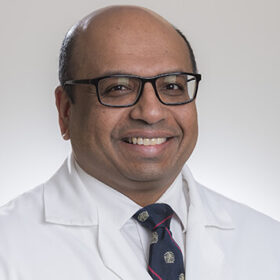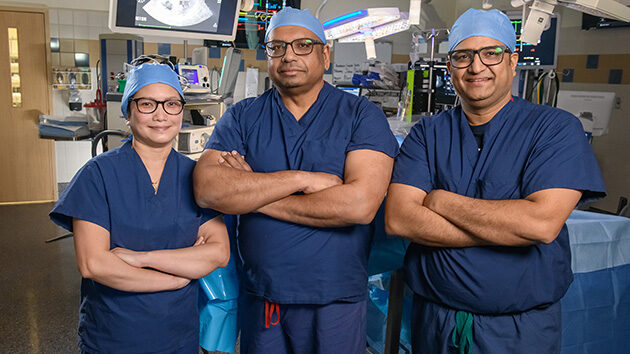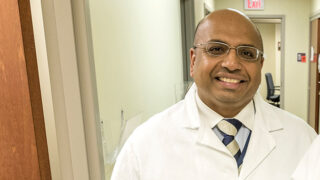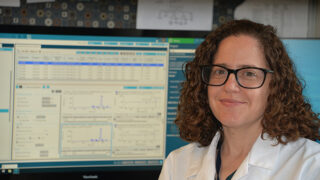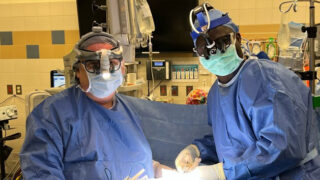Cardiothoracic Surgery
Leader in Cardiothoracic Surgery and Minimally Invasive Treatment
From the region's first open-heart surgeries to today's minimally invasive technology, we've set the standard for the highest level of surgical care. We have a long history of providing the latest heart surgery techniques, from the routine to the highly complex, for patients of all ages.
We have the largest coronary care unit, care for more cardiology patients, and perform more cardiovascular and vascular surgeries than any other health care provider in the Capital Region.
Care Across the Capital Region
Cardiac surgery, routine and more advanced, is available at all System hospitals, with the availability of the team at Albany Medical Center for the region's most complex heart patients.
Because the Albany Med Health System is an academic health system, our patients have access to clinical trials and they benefit from the research conducted at Albany Medical College.
All locations in the System can be found in the Get Care section of this page.
- Aortic aneurysms
- Aortic dissections
- Aortic stenosis/insufficiency
- Atherosclerosis
- Atrial fibrillation
- Bacterial endocarditis
- Cardiomyopathy
- Chronic total occlusion
- Congenital heart disease
- Coronary artery disease
- Heart attack
- Heart failure
- Heart murmur
- Irregular heart rhythms
- Mitral stenosis/insufficiency
- Mitral valve prolapse
- Post-transplant care
- Aortic aneurysm repair/removal
- Atherectomy
- Barostim Baroreflex Activation Therapy for heart failure
- Complex coronary revascularization
- Coronary artery bypass surgery
- Coronary stenting
- Extracorporeal membrane oxygenation (ECMO)
- Heart port minimally invasive procedures
- Heart valve repair and replacement
- Hybrid atrial fibrillation ablation procedures
- Microwave ablation
- Minimally invasive cardiac surgery for coronary artery bypass grafting (MICS CABG)
- Minimally invasive valve surgery
- MitraClip mitral valve therapy
- Mitral valve repair
- Open-heart surgery
- Pacemaker insertion
- Robotic mitro valve replacement surgery
- Surgical ablation
- Tendyne Mitral Valve
- Transcatheter aortic valve replacement (TAVR)
CABG is a surgical procedure used to treat coronary artery disease. Arteries or veins from elsewhere in a patient’s body are grafted to coronary arteries to create a new blood supply to the heart.
The Transcatheter Heart Valve (TAVR) procedure is for patients with severe aortic stenosis who are ineligible due to age or other medical conditions for traditional open-heart aortic valve replacement.
This minimally invasive procedure involves delivering a collapsible artificial valve into the heart using a catheter inserted through a small incision in an artery of the leg or in the chest. The artificial valve is expanded inside the diseased valve by inflating a balloon and almost immediately goes to work.
Open heart mitral valve surgery is the standard of care for mitral regurgitation, but many high-risk patients are not candidates for an invasive procedure. MitraClip therapy offers an alternative for high-risk patients.
In this operating room located at Albany Medical Center, fixed systems are accompanied by floating angiography tables that allow the vascular surgeon to move the patient easily, affording the most control during surgery and permitting the most effortless and efficient imaging.
Complete with digital fluoroscopic imaging equipment that creates three-dimensional pictures of blood vessels and arteries, the facility allows surgeons to perform advanced minimally invasive procedures as well as traditional surgeries. Complex "hybrid" open and endovascular procedures, as in the case of bypass and stenting procedures, are performed simultaneously by a team of vascular and cardiac surgeons and interventionalists.
The extracorporeal membrane oxygenation (ECMO) program at Albany Medical Center is the largest in the Capital Region. It was critical during the Covid-19 pandemic for patients who have failed ventilator therapy and is used regularly to help critically sick and injured patients recover.
Training the Next Generation of Physicians
Learn more about our Cardiothoracic Surgery fellowship program at Albany Medical College.
